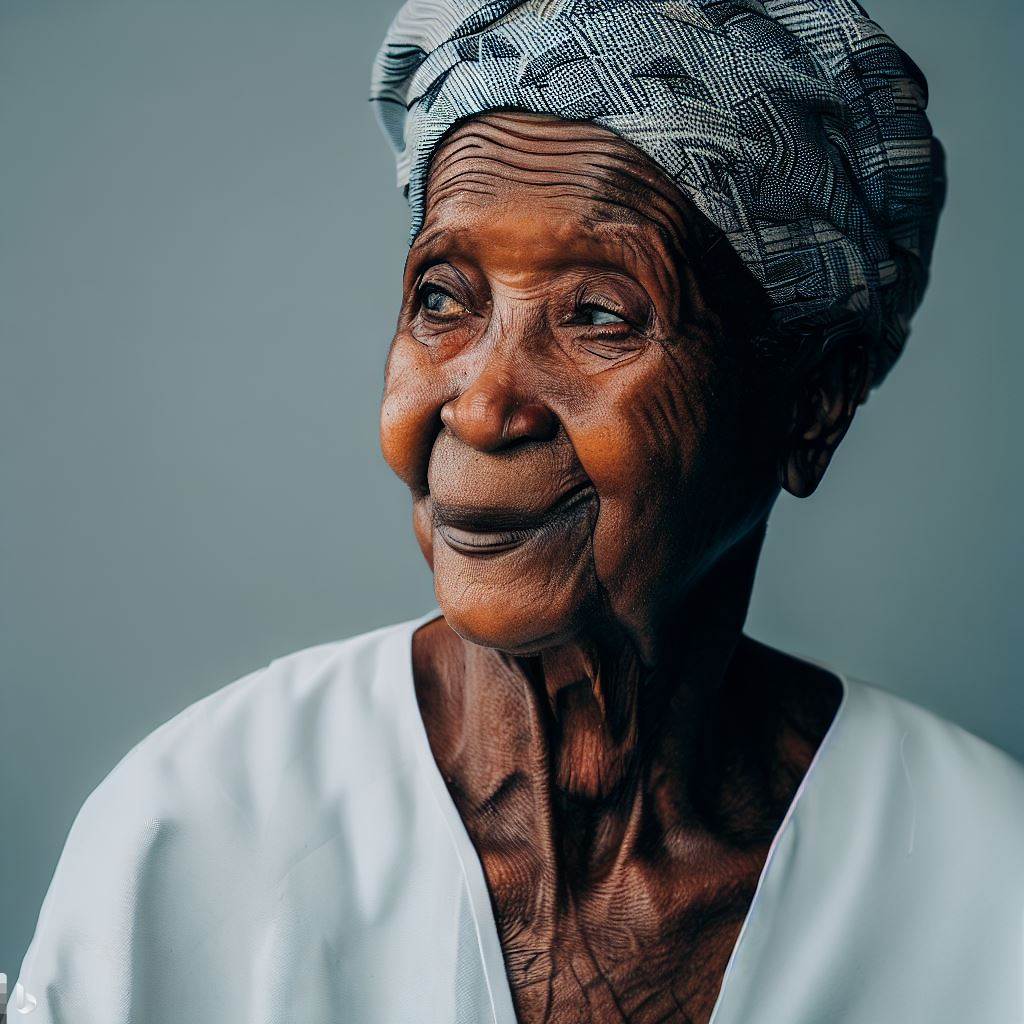Introduction
Occupational therapy is a valuable practice that helps individuals regain and maintain their independence. In Nigeria, occupational therapy is a growing field with increasing recognition and importance.
The purpose of this blog post is to explore the current trends and innovations in Nigerian occupational therapy.
Occupational therapy is a crucial practice that aids individuals in reclaiming their independence and quality of life.
In Nigeria, this profession has experienced significant growth and recognition. This blog post aims to delve into the current trends and innovations in Nigerian occupational therapy.
Occupational therapy is an essential healthcare practice that focuses on assisting individuals in performing daily activities and maintaining their independence.
In Nigeria, this profession has gained traction and is increasingly becoming recognized and valued by healthcare providers and the general public.
Therefore, it is important to explore the current trends and innovations in occupational therapy in Nigeria.
Occupational therapy encompasses interventions to enhance individuals’ independence and functioning in their daily lives.
In Nigeria, this profession is gaining momentum, with increasing recognition from healthcare professionals and the general public.
Exploring the current trends and innovations in Nigerian occupational therapy is crucial to understanding its impact and the possibilities for further development.
Read: Career Spotlight: Mudlogging and its Role in Nigeria’s Oil Field
Current Trends in Nigerian Occupational Therapy
Occupational therapy in Nigeria is witnessing significant advancements and innovations that aim to enhance the quality of care provided to individuals.
These developments not only rely on technological advancements but also emphasize evidence-based practice and the integration of alternative therapies.
Technological advancements and their impact on therapy
Technological advancements have revolutionized the field of occupational therapy in Nigeria. One major trend is the use of virtual reality in rehabilitation.
By creating immersive and interactive environments, virtual reality allows therapists to simulate real-life scenarios and engage patients in therapeutic activities.
This technology has shown promising results in improving motor skills, cognitive abilities, and overall function.
Another technological trend is the development of mobile apps specifically designed to support therapy.
These apps offer a range of functionalities, from providing educational resources and exercises to monitoring progress and facilitating communication between therapists and patients.
They empower individuals to take an active role in their therapy journey and facilitate remote therapy services.
Importance of evidence-based practice in occupational therapy
The importance of evidence-based practice cannot be overstated in occupational therapy.
Nigerian practitioners are actively involved in conducting research studies to generate evidence that supports interventions and treatment approaches.
These endeavors are crucial in providing a solid foundation for therapeutic decision-making and ensuring optimal outcomes for patients.
Furthermore, the implementation of evidence-based interventions has gained prominence in Nigerian occupational therapy.
By integrating the latest research findings into clinical practice, therapists can deliver interventions that are proven to be effective and tailored to individual needs.
This approach ensures that therapy is based on the best available evidence, resulting in improved outcomes and patient satisfaction.
Integration of alternative therapies
In addition to the reliance on technology and evidence-based practice, Nigerian occupational therapy is also embracing alternative therapies.
Music therapy, for instance, has gained recognition as a valuable adjunct to traditional occupational therapy.
It harnesses the power of music to address physical, emotional, and cognitive needs, promoting healing and enhancing well-being.
Moreover, animal-assisted therapy is gradually being introduced into occupational therapy sessions in Nigeria.
Interactions with trained therapy animals, such as dogs or horses, have shown significant therapeutic benefits for individuals with various conditions.
These animal-assisted interventions foster emotional regulation, social skills development, and overall engagement in therapy.
Basically, Nigerian occupational therapy is witnessing exciting trends and innovations that are shaping the future of the profession.
Technological advancements, such as virtual reality and mobile apps, are transforming rehabilitation practices. Evidence-based practice is becoming a cornerstone of therapy, supported by ongoing research efforts.
Additionally, the integration of alternative therapies, including music therapy and animal-assisted therapy, expands the holistic approach to care.
These emerging trends reflect the commitment of Nigerian occupational therapists to provide high-quality, evidence-based, and holistic care to their clients.
Read: Opportunities for Chemical Engineers in Nigeria’s Gas Industry
Innovations in Nigerian Occupational Therapy
Occupational therapy in Nigeria has witnessed exciting trends and innovations that have contributed to improving patient care and outcomes.
In this section, we will explore three significant areas of innovation in Nigerian occupational therapy:
- Expanding services through telehealth
- Collaboration with other healthcare professionals
- Addressing cultural barriers while promoting diversity
Expanding services through telehealth
The advent of telehealth has provided occupational therapists in Nigeria with opportunities to expand their services to a wider population.
By leveraging technology, therapists can reach patients in rural or remote areas, thereby improving access to care.
Benefits and challenges
Telehealth brings several benefits, such as increased convenience for patients and improved efficiency of service delivery.
It allows therapists to remotely assess patients, provide interventions, and monitor progress. However, challenges such as limited technological infrastructure and the need for specialized training for therapists exist.
Success stories from practitioners
Numerous practitioners have successfully integrated telehealth into their practice.
They have reported positive outcomes, including improved patient engagement and satisfaction, and enhanced therapy adherence due to increased accessibility.
Collaboration with other healthcare professionals
In providing holistic and comprehensive care to patients, collaboration with other healthcare professionals is crucial
Occupational therapists in Nigeria recognize the value of interdisciplinary approaches in achieving optimal outcomes.
Interdisciplinary approaches for holistic care
By collaborating with professionals from various healthcare disciplines, occupational therapists can address the multiple dimensions of patients’ health conditions.
This approach ensures comprehensive care and enhances patient well-being.
Examples of successful collaborations
Occupational therapists in Nigeria collaborate with physicians, physiotherapists, psychologists, and nutritionists, among others.
These collaborations have resulted in improved patient outcomes, as each professional contributes their unique expertise to provide holistic care.
Addressing cultural barriers and promoting diversity
To ensure the effectiveness and relevance of occupational therapy in Nigeria, it is essential to address cultural barriers and promote diversity in service delivery.
Tailoring therapy to Nigerian culture and traditions
Occupational therapists recognize that cultural sensitivity is crucial for therapy to be effective.
They adapt interventions to align with Nigerian culture, traditions, and belief systems, making therapy more acceptable and meaningful to patients.
Engaging with diverse communities
Therapists actively engage with diverse communities in Nigeria.
They participate in cultural events, collaborate with community leaders, and educate the public about the benefits of occupational therapy.
These initiatives promote inclusivity and help overcome cultural barriers to accessing care.
Basically, Nigerian occupational therapy is witnessing innovative practices in expanding services through telehealth, collaborating with other healthcare professionals, and addressing cultural barriers while promoting diversity.
These innovations have significantly contributed to improving patient care and outcomes in Nigeria.
As the field continues to evolve, further advancements are expected, ensuring that occupational therapy remains at the forefront of healthcare innovation in the country.
Read: Health and Safety Careers in Nigeria’s Oil and Gas Industry

Challenges and Future Directions
In Nigerian occupational therapy, there are several challenges and future directions that need to be addressed in order to improve the profession and the quality of services provided.
This section will discuss the challenges faced due to limited resources and funding, the importance of enhancing awareness and advocacy, as well as future research areas and areas for improvement.
Limited resources and funding
One of the major challenges faced by occupational therapists in Nigeria is the limited availability of resources and funding. This has a significant impact on service delivery and professional development within the field.
Due to the lack of resources, occupational therapists often struggle to provide the necessary interventions and support to their clients.
They might not have access to specialized equipment, assistive devices, or even proper workspace. This greatly hampers their ability to deliver effective therapy and limits the potential outcomes for their clients.
In addition, the limited funding leads to challenges in professional development.
Occupational therapists have limited opportunities for continuing education, attending conferences, or participating in research activities.
This hinders their ability to stay updated with the latest trends and innovations in the field, which is crucial for providing evidence-based practice.
Read: Top Institutions to Study Phlebotomy in Nigeria
Enhancing awareness and advocacy for occupational therapy
Another challenge in Nigerian occupational therapy is the lack of awareness and advocacy for the profession.
Many people, including healthcare professionals, have limited knowledge about occupational therapy and its benefits. This lack of awareness contributes to the underutilization of occupational therapy services.
To address this challenge, it is essential to educate the public and healthcare professionals about the importance and value of occupational therapy.
By raising awareness, more people can benefit from the services and understand how occupational therapy can improve their overall well-being and quality of life.
Healthcare professionals can also become advocates for occupational therapy and refer their patients to occupational therapists when appropriate.
Future research areas and areas for improvement
Looking towards the future of Nigerian occupational therapy, there are several research areas and areas for improvement that can further enhance the profession.
One important research area is conducting comparative studies with other countries. This allows Nigerian occupational therapists to benchmark their practices and outcomes against international standards.
By identifying areas of improvement and learning from other countries, Nigerian occupational therapy can continue to evolve and provide the best possible services to clients.
Furthermore, exploring technology further in therapy practices is also an important area for improvement.
Technology has the potential to revolutionize occupational therapy interventions, making them more efficient and accessible.
By embracing technology and incorporating it into therapy practices, occupational therapists in Nigeria can overcome some of the limitations imposed by limited resources and funding.
In summary, Nigerian occupational therapy faces challenges related to limited resources and funding, as well as a need to enhance awareness and advocacy.
Additionally, future research areas and areas for improvement, such as comparative studies and the exploration of technology, can further advance the field.
Overcoming these challenges and focusing on these future directions will ensure the growth and development of occupational therapy in Nigeria, ultimately benefiting the clients and professionals within the field.
Read: The Career Path of a Reservoir Engineer in Nigeria’s Oil Sector
Conclusion
In this blog post, we have explored the current trends and innovations in Nigerian Occupational Therapy.
It is important for occupational therapists in Nigeria to stay updated on these trends and innovations.
By keeping up-to-date, therapists can provide the best possible care for their patients and contribute to the advancement of the field.
Publish Your Professional Profile, Business or Brand
Showcase your expertise, gain trust, and boost visibility instantly on Professions.ng.
Publish NowThis blog has highlighted the key points discussed, emphasizing the need for ongoing learning and professional development.
Occupational therapists in Nigeria should embrace new technologies and techniques, always seeking to improve their practice and expand their knowledge.
Through continued advancement and innovation, Nigerian occupational therapists can enhance the quality of care provided to individuals with various disabilities and conditions.
It is crucial for occupational therapy professionals in Nigeria to actively participate in research, attend conferences, and collaborate with colleagues.
By doing so, they can stay at the forefront of the field and contribute to the overall improvement and growth of Nigerian occupational therapy.
On a final note, staying updated on current trends and innovations is essential for Nigerian occupational therapists as it promotes professional growth and improves patient outcomes.




